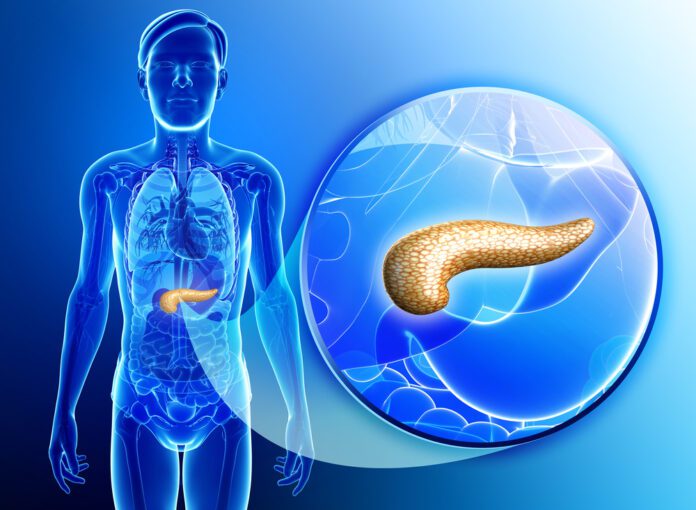Overview Of Pancreatic Islet Cell Tumors
A pancreatic islet cell tumor is a rare tumor of the pancreas that starts from a type of cell called the islet cell.
Commonly Associated With
Cancer – pancreas; Cancer – pancreatic; Pancreatic cancer; Islet cell tumors; Islet of Langerhans tumor; Neuroendocrine tumors; Peptic ulcer – islet cell tumor; Hypoglycemia – islet cell tumor; Zollinger-Ellison syndrome; Verner-Morrison syndrome; Gastrinoma; Insulinoma; VIPoma; Somatostatinoma; Glucagonoma
Causes Of Pancreatic Islet Cell Tumors
In the healthy pancreas, cells called islet cells to produce hormones that regulate several bodily functions. These include blood sugar levels and the production of stomach acid.
Tumors that arise from islet cells of the pancreas can also produce a variety of hormones, which can lead to specific symptoms.
Pancreatic islet cell tumors can be noncancerous (benign) or cancerous (malignant).
Islet cell tumors include:
- Gastrinoma (Zollinger-Ellison syndrome)
- Glucagonoma
- Insulinoma
- Somatostatinoma
- VIPoma (Verner-Morrison syndrome)
- A family history of multiple endocrine neoplasia, type I (MEN I) is a risk factor for the development of islet cell tumors.
Symptoms Of Pancreatic Islet Cell Tumors
Symptoms depend on which hormone is made by the tumor.
For example, insulinomas produce insulin, which lowers blood sugar levels. Symptoms may include:
- Feeling tired or weak
- Shaking or sweating
- Headache
- Hunger
- Nervousness, anxiety, or feeling irritable
- Unclear thinking or feeling uneasy
- Double or blurry vision
- Fast or pounding heartbeat
- If your blood sugar level gets too low, you may faint, have a seizure, or even go into a coma.
Gastrinomas make the hormone gastrin, which tells the body to make stomach acid. Symptoms may include:
- Abdominal pain
- Diarrhea
- Ulcers in the stomach and small bowel
- Vomiting blood (occasionally)
Glucagonomas make the hormone glucagon, which helps the body raise blood sugar level. Symptoms can include:
- Diabetes
- Red, blistery rash in the groin or buttocks
- Weight loss
- Frequent urination and thirst
Somatostatinomas make the hormone somatostatin. Symptoms may include:
- High blood sugar
- Gallstones
- Yellowish appearance to skin, and eyes
- Weight loss
- Diarrhea with foul smelling stools
- VIPomas make the hormone vasoactive intestinal peptide (VIP) which is involved in maintaining the balance of salts, sodium, potassium and other minerals in the GI tract.
VIPomas may cause:
- Severe diarrhea that may lead to dehydration
- Low blood potassium levels, and high calcium levels
- Abdominal cramps
- Weight loss
Exams & Tests
Your health care provider will take your medical history and perform a physical exam for pancreatic islet cell tumors.
Blood tests may vary, depending upon the symptoms, but may include:
- Fasting glucose level
- Gastrin level
- Glucose tolerance test
- Secretin stimulation test for pancreas
- Blood glucagon level
- Blood insulin C-peptide
- Blood insulin level
- Fasting serum somatostatin level
- Serum vasoactive intestinal peptide (VIP) level
Imaging tests may be done:
- Abdominal CT scan
- Abdominal ultrasound
- Endoscopic ultrasound
- MRI of abdomen
- A blood sample may also be taken from a vein in the pancreas for testing.
Sometimes, surgery is needed to diagnose and treat this condition. During this procedure, the surgeon examines the pancreas by hand and with ultrasound.
Treatment Of Pancreatic Islet Cell Tumors
Treatment depends on the type of tumor and if it is cancerous.
Cancerous tumors can grow quickly and spread to other organs. They may not be treatable. Tumors are often removed with surgery, if possible.
If cancer cells spread to the liver, a part of the liver may also be removed, if possible. If the cancer is widespread, chemotherapy may be used to try and shrink the tumors.
If the abnormal production of hormones is causing symptoms, you may receive medicines to counteract their effects. For example, with gastrinomas, the overproduction of gastrin leads to too much acid in the stomach. Medicines that block stomach acid release can reduce symptoms.



